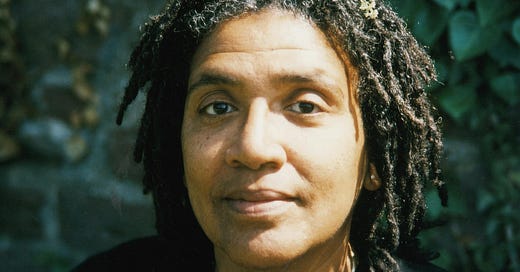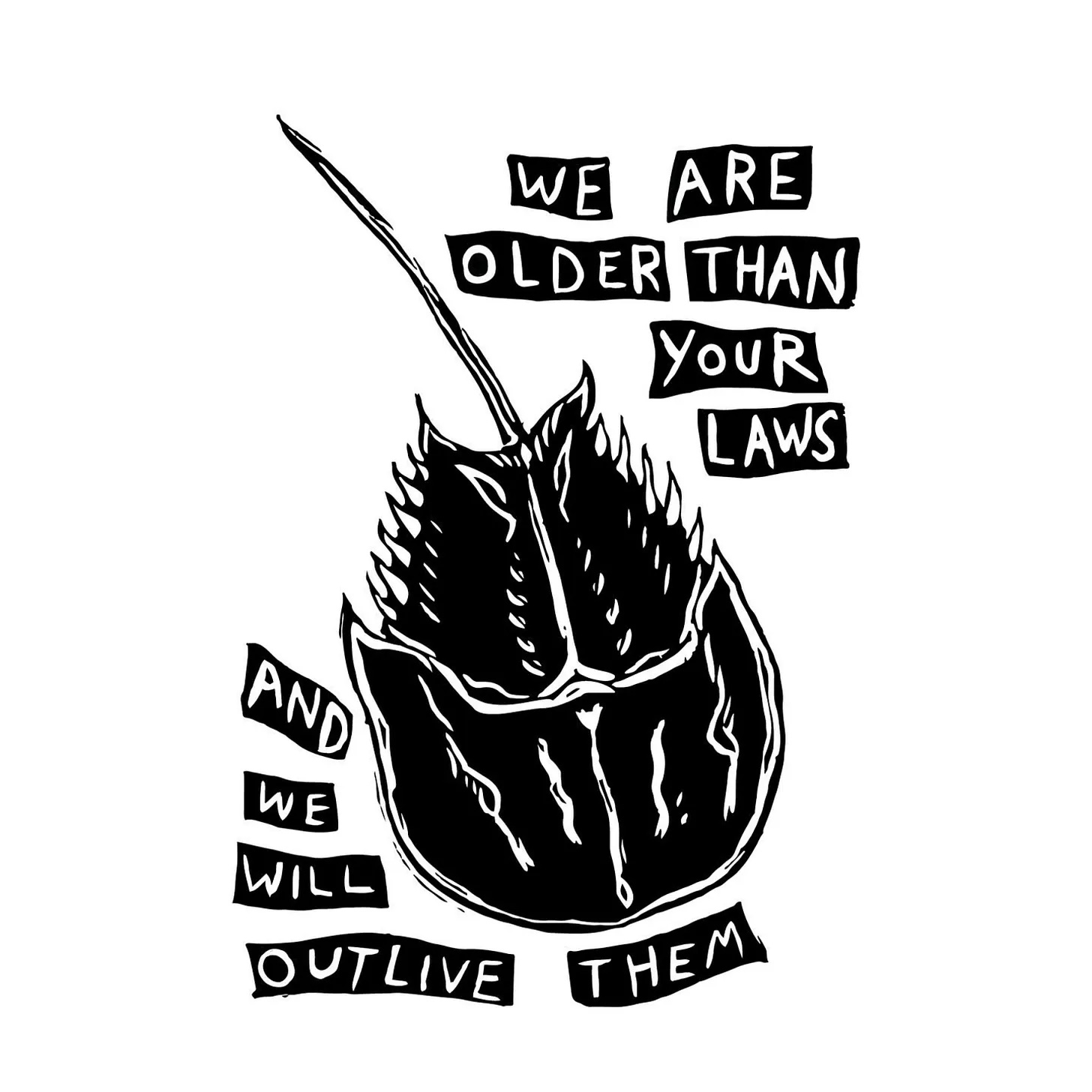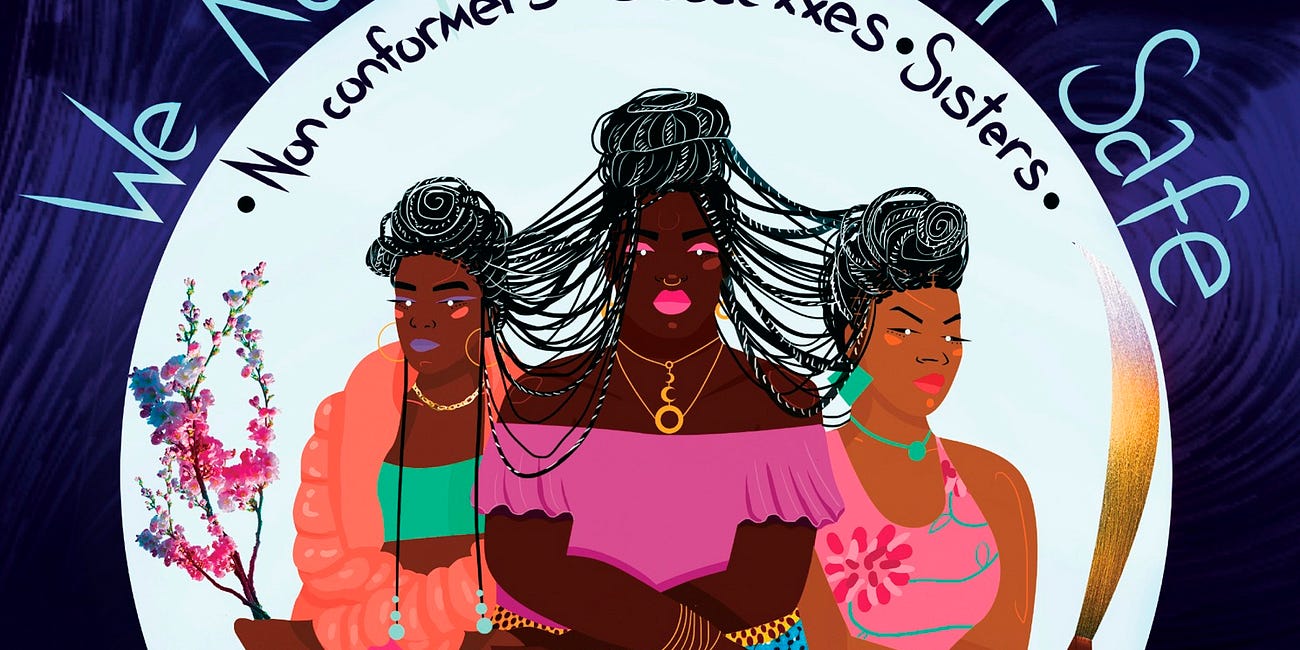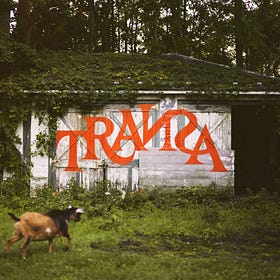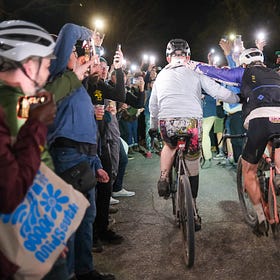As part of our household commitment to stop using Amazon, I realized in March that I needed to cancel my neglected Audible account. This was something I would have been well-served to do ages ago, because I haven’t been listening to audiobooks in a while and had accumulated a large number of credits. When you cancel your account, any unused credits disappear - money wasted. So I sat down last month and bought a bunch of audiobooks with a commitment to spend 30-60 minutes of my mornings walking and listening to them. My selections speak to the challenges I and we are facing and my yearning for guidance: Freedom is a Constant Struggle by Angela Davis, Survival is a Promise: The Eternal Life of Audre Lorde by Alexis Pauline Gumbs, Octavia’s Brood: Science Fiction Stories from Social Justice Movements edited by Adrienne Maree Brown and Walidah Imarisha, Be a Revolution: How Everyday People are Fighting Oppression and Changing the World - And How You Can, Too by Ijeoma Oluo, Man’s Search for Meaning by Victor Frankl, Hope in the Dark: Untold Histories, Wild Possibilities and A Paradise Built in Hell: The Extraordinary Communities that Arise in Disaster by Rebecca Solnit, Embrace Fearlessly the Burning World by Barry Lopez, and Not a “Nation of immigrants”: Settler Colonialism, White Supremacy, and a History of Erasure and Exclusion by Roxanne Dunbar-Ortiz.
The titles alone make clear what I’m looking for: ways of seeing this moment in time (and the horrific histories we stand upon) and all the interlocking and distant struggles we face as contexts in which we can find meaning and liberation. Radical hope. Were it not for my mountain of unused credits and the need to use them, I don’t think I would have gotten all of these at once, though it felt fitting to add hours and hours to my library. The sheer volume indicative of my desperation and sense of urgency but also my commitment to be in this for the long haul. Patience and urgency/importance seems to be a recurring dialectic theme in my life these days, a tension psychotherapy practitioners know well. Of course we are desperate for change, for improvement when we feel deeply the suffering of ourselves or others under current conditions. And there are no quick fixes, despite the seeming abundance of faux gurus and corporations and political ideologies that want to sell you some. Needing things to happen fast and being dissatisfied with slower paces is a recipe for burnout and/or abandonment of worthwhile efforts.
What does it mean to survive?
As a part of my commitment to morning walking and listening (indeed studying), I’ve started Alexis Pauline Gumbs’ “quantum” (as in non-linear, transcendent) biography of Audre Lorde, Survival is a Promise, and already feel something new stirring in me. Or something not new developing and evolving: a re-orientation to the concept of survival, so that it means less about living through something and more about legacy and living beyond something. Gumbs opens the prologue to her book with the line “When Audre Lorde began her afterlife on November 17, 1992…” The phrasing moved me so much, I paused it and immediately wrote it down. I do not like euphemisms for death. I avoid saying things like “passed away” and “left this plane,” etc. I do not begrudge others for finding solace in not using the words “death” and “died,” but such alternatives and evasions bring me no comfort. I also tend to not believe in a conscious spiritual post-death experience. And yet, how limiting it is to speak only of death as an ending. Lorde does have an afterlife, as will each of us - not necessarily (in my belief system) in a heaven or some astral realm, but in the people and creatures we touch and the lessons we’ve taught that continue on. Our afterlives are contained in the ripples of our legacies. We use the phrase “she is survived by” so routinely in obituaries and memoriams that I hadn’t thought about the phrasing. Our survival is not limited to our physical existence but includes the people we shaped even in small ways throughout our lives and beyond them.
I’ve written before that I find the refrain “you will outlive them” in Nina Keith, Julie Byrne, and Taryn Blake Miller’s song “Come Back Different” incredibly powerful. Trans artist coyotesnout has a beautiful piece conveying the same message: “We are older than your laws and we will outlive them.” At the same time, people are dying. As ICE ramps up its already long-standing practices of unjust and inhumane detainment in for-profit incarceration centers, immigrants seeking refuge or education in our country are at risk of psychological trauma and physical harm. People needing abortions or experience miscarriages will die from lack of medical care in forced birthing states. Deaths of despair and poverty will rise in this country. Some trans people struggling to imagine tolerating a life of dysphoria and marginalization will turn to suicide as gender affirmation becomes harder to access or is criminalized. What does it mean to survive all this?
Surviving can’t only mean that we figure out how we as individuals or an individual group will make it through. Survival isn’t just about cashing in our privileges for ways to avoid the worst kinds of oppression. There’s no liberation in my “being okay” because I’m in a safer state or can blend in. To be clear, there’s nothing inherently wrong in you/us seeking safety how you/we need to. Often accessing safety allows people to more readily engage in liberatory work, but let’s be honest that this kind of survival alone is limited. Survival also can’t only be about austerity and suffering and self-sacrifice for causes larger than us. We know that Audre Lorde, for example, sought and shared love and pleasure and this was central to how she understood her (and others’) survival.
I am coming to understand that survival at least partially means that our ideas live on. That the spirit of our lives and our peoples and our movements live on. Transness has been around for as long as humans have tried to over-simplify gender and bodies. Migration is a critical part of human history (indeed human survival), and the history of many creatures on this planet. Commitments to real love and bodily autonomy and freedom of movement can survive this moment, even if the liberatory promises contained in these efforts do not bear fruit until our individual afterlives.
As may be evident now, this isn’t a post with definitive answers. This is a post to say I’m asking questions and I’m learning. I am eager to learn what Audre Lorde and Alexis Pauline Gumbs can teach us about survival, and what Angela Davis and Roxanne Dunbar-Ortiz and Ijeoma Oluo can teach us about confronting the past and resisting oppression, and what Rebecca Solnit, Victor Frankl, Walidah Imarisha, and Adrienne Maree Brown can teach us about hope and meaning-making.
This is a post of humility to say it took me a few decades to get here. I won’t self-flagellate more than is useful to y’all, but I do think I should name that my previous ideas about survival and hope were individualistic and were inextricable from the whiteness and class privilege and medical and academic contexts in which they developed. I’m grateful to transness for many reasons, and one of those is for helping me see the holes in the worldviews being readily passed around. And I’m grateful to have people in my life thinking critically and modeling this learning and knowledge and expansive perspective-taking. Although I should also shout out my parents who early on instilled a dissatisfaction with and skepticism of some of the more easily digestible narratives of how the world works.
And if your world/worldview feels like it’s falling apart right now, it probably is. Maybe it’s cracking open.
We have an opportunity here to deconstruct the ways we’ve thought about survival and the ways we’ve thought about America and community and race and class and politics and gender and violence and scarcity and labor. It’s not too late to wake up to the realities of this world and this life and thus the real possibilities contained within them. Survival in many of its definitions probably depends on us doing this. Thankfully, we have many practiced teachers who want to help us learn and unlearn. And it’s part of our task to tolerate (survive?) the dissonance of doing this learning and living and moving forward alongside suffering and death (of ourselves and of others).
If this resonated with you, you may find my previous writings of interest, including the following:
Mantras for Living Under This Administration
I have always been drawn to mantras, personal mottos, maxims, which is perhaps ironic because I am myself very verbose and also generally incredibly put off by reductionist takes and oversimplification. But I love the idea of having a short phrase that can remind me of my values or path or a spiritual strategy. A mantra is not meant to be a stand-in for a whole, nuanced thought or argument. It is meant to remind us of that more complete reflection and to help us keep our minds, spirits, and actions values- or purpose-aligned.
The Radical Hope of TRAИƧA
Simply put, radical hope is a belief that the future can be different and better for us. It is “radical” in that the belief is anchored in awareness of challenges and oppression. Rather than relying on false hope that denies hardship, radical hope acknowledges ongoing psychological and political harm and, from that context, envisions a future of resistance, purpose, goodness, and possibility.
"To Exist in the Face of Suffering and Death and Somehow Still Keep Singing"
We must do more than feel good and find temporary breaks from the suffering. And not just because we’ll exhaust ourselves trying to escape a reality that is all around us. But because resistance doesn’t always feel good and is still critical when it’s hard and awful. And still, we build and maintain strength for the hard parts by staying alive to joy and connection.

